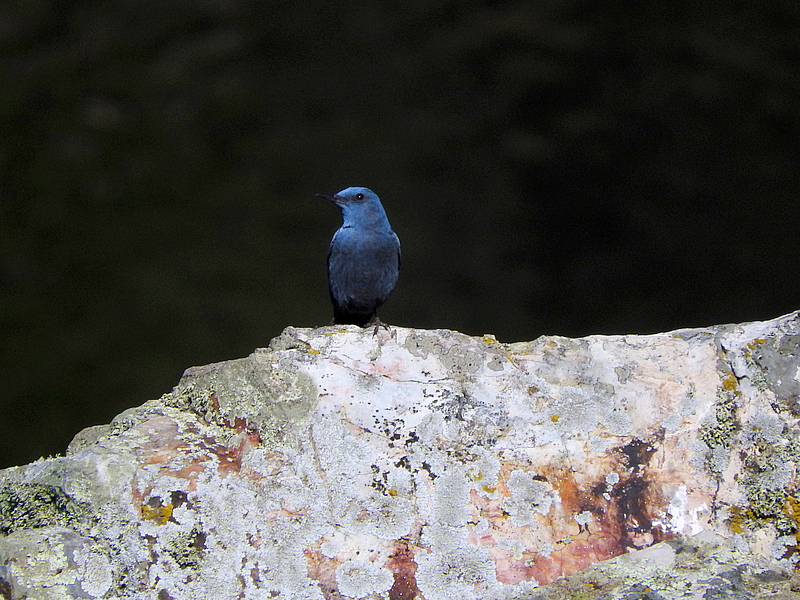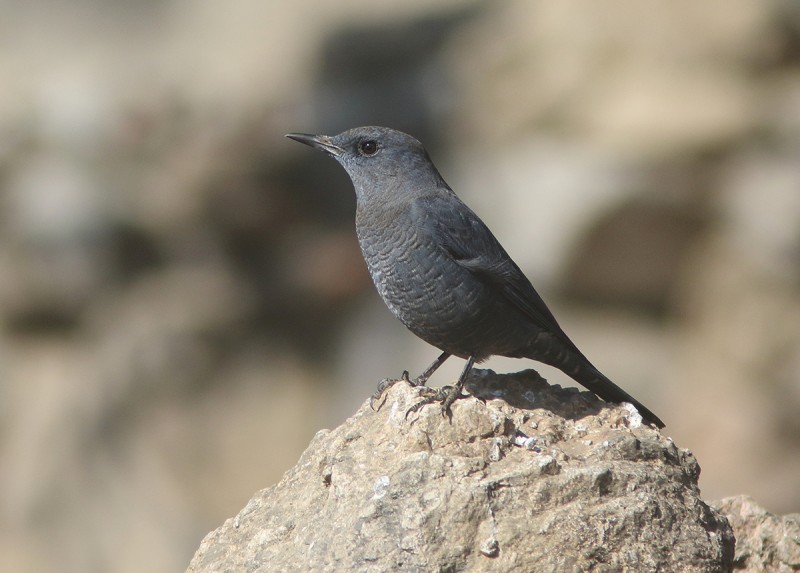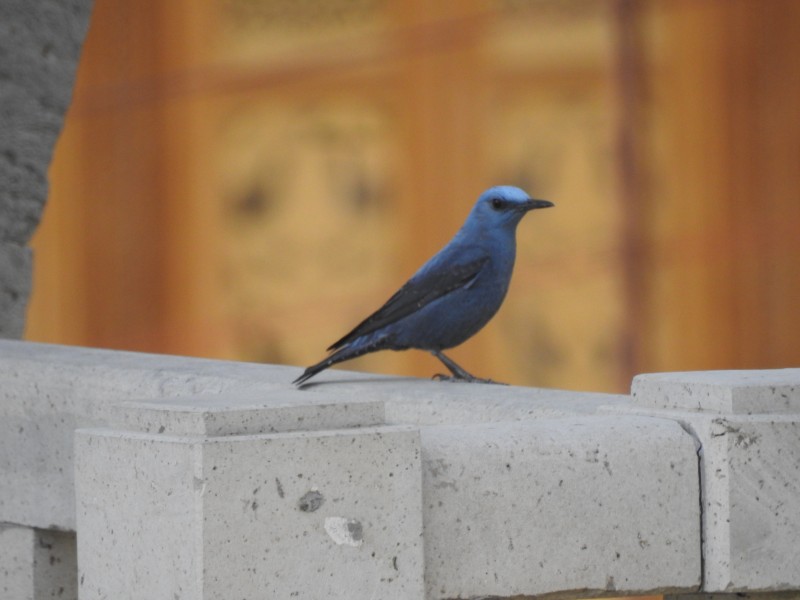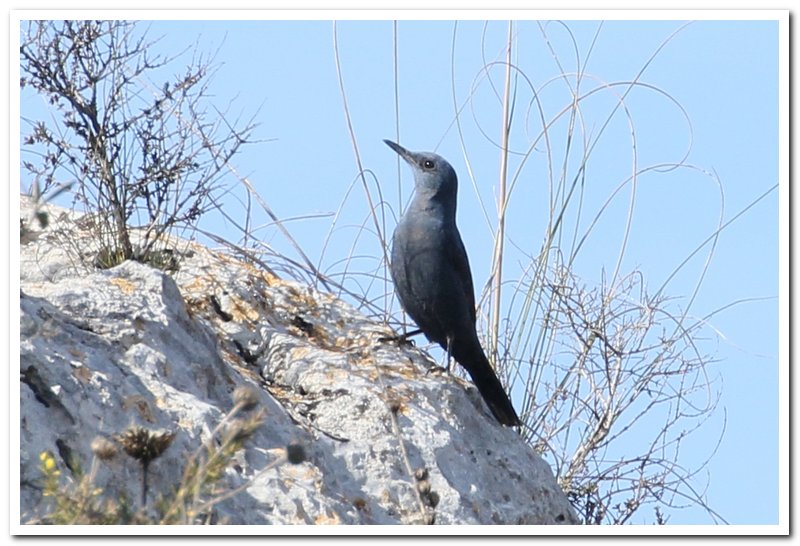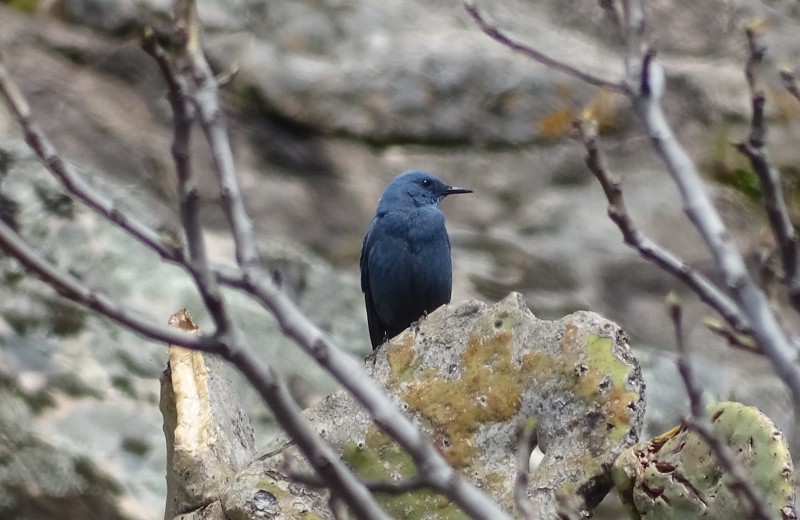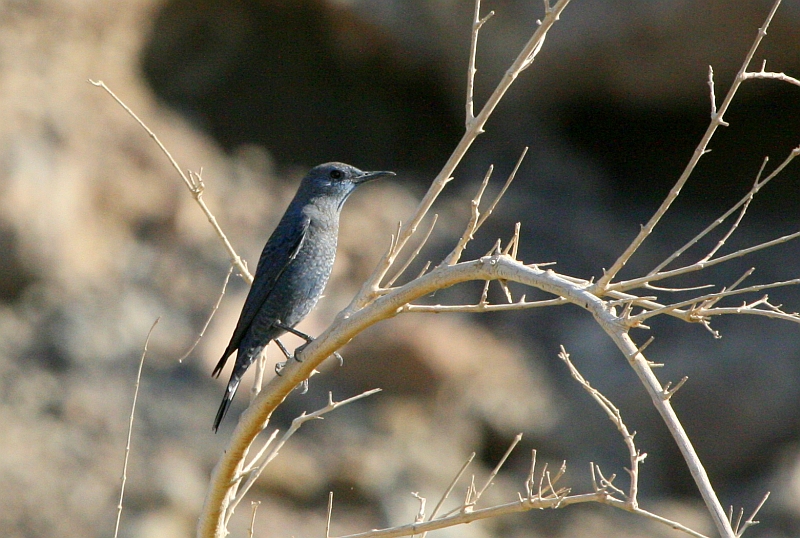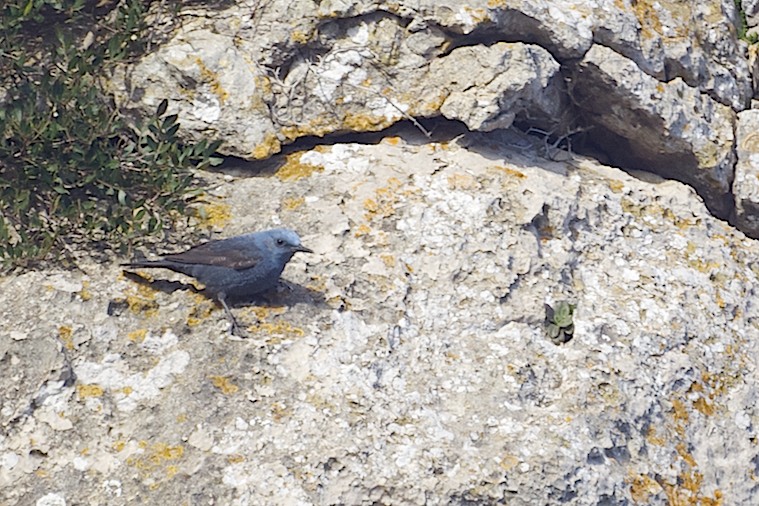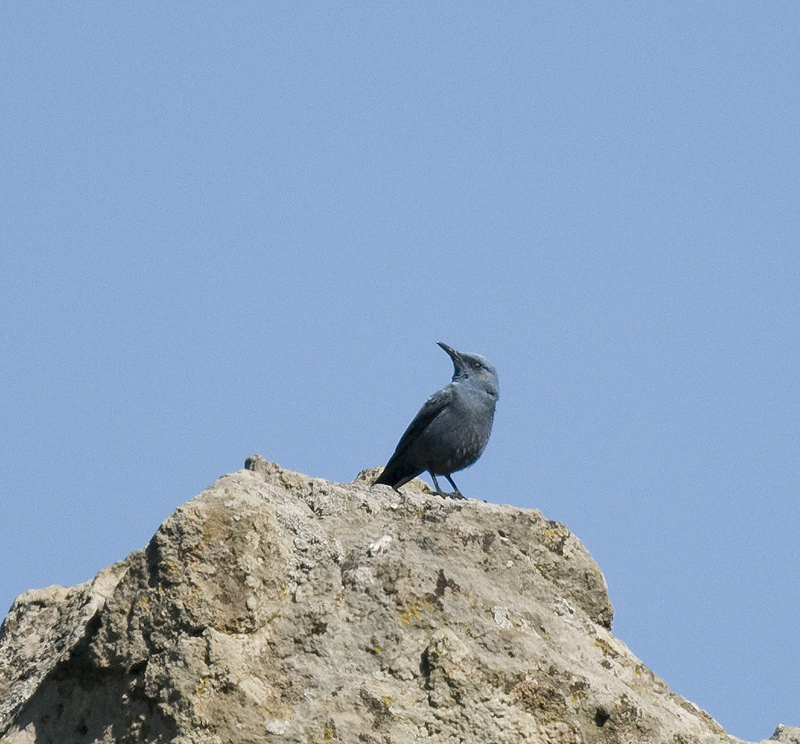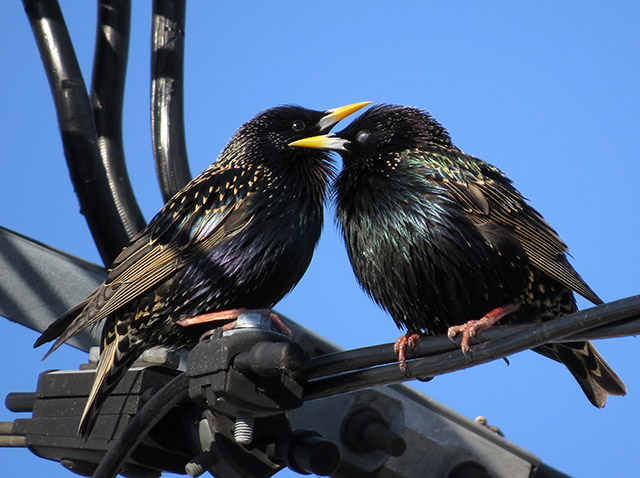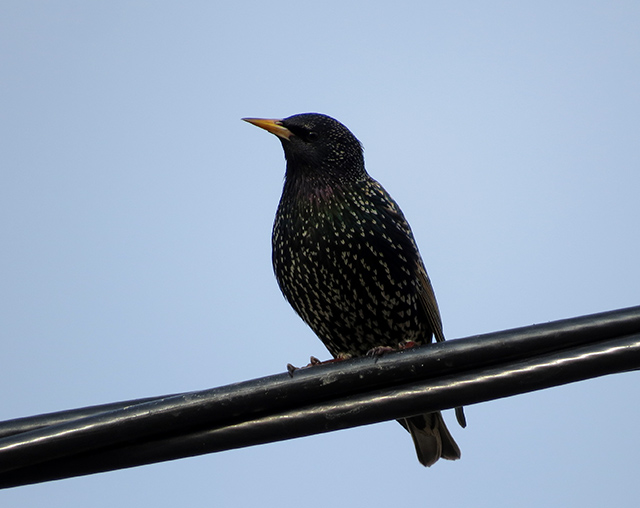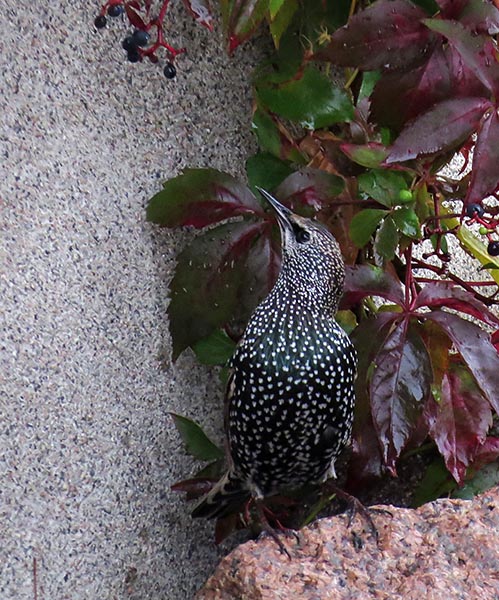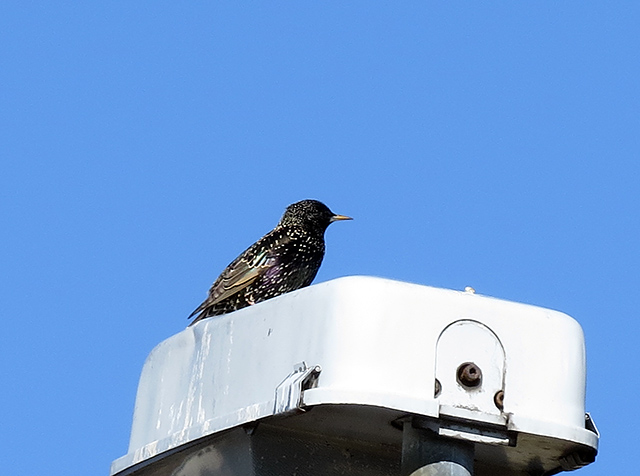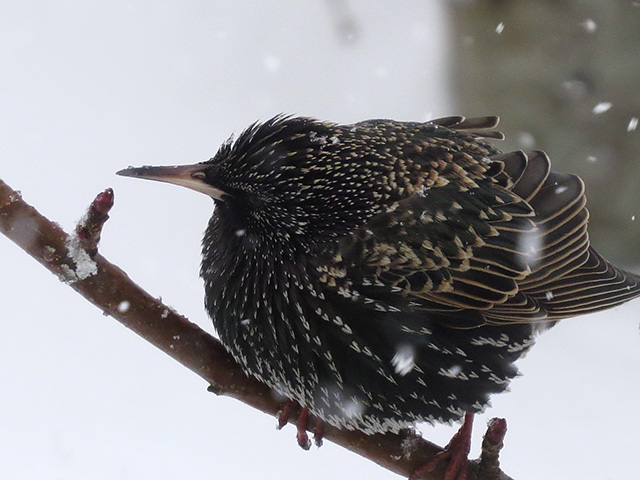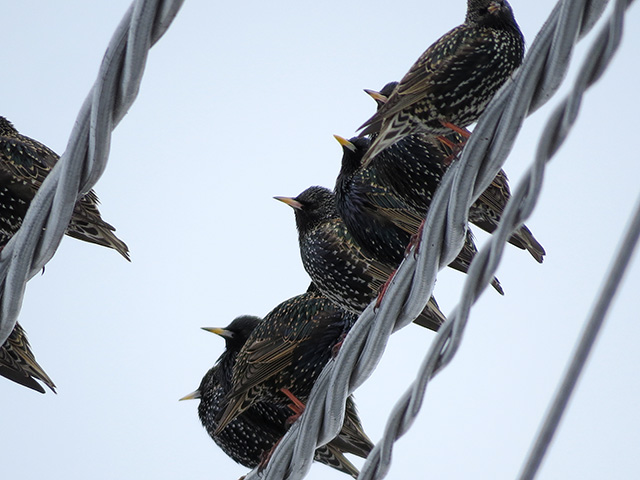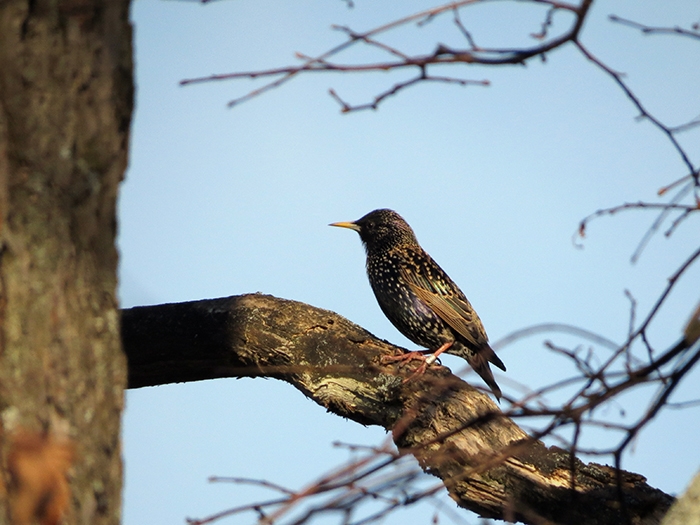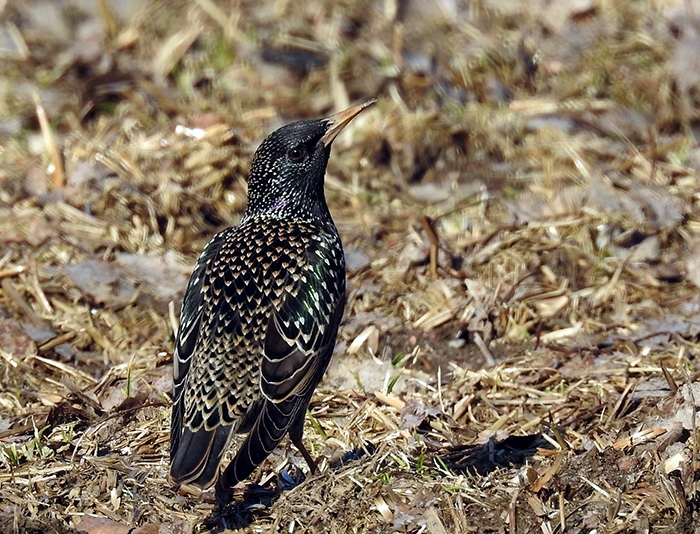Blue Rock Thrush (Monticola solitarius)
Starling (Sturnus vulgaris)
A slim, medium large thrush attached to rocky terrain, mountains or concrete buildings. Differs from Rufous-tailed Rock-Thrust, Monticola saxatilis in all plumages by long bill, and long, dark tail (not rufous). Bill and tail gives the bird an elongated appearance and profile. The tail reaches far behind the primaries when perched. Male unmistakable if seen well, but note that the bluish tones appears dark grey in unfavorable light. First winter males are barred underneath but gradually turns bluer and more evenly coloured. Immatures and females look alike with grey-brown upperparts and barred underparts, and are generally darker in throat and breast than M. saxatilis.
Sound:Alarm call consists of short, soft whistles. Often two notes in sequence, the second one higher ("pjuu-eee"), and sometimes followed by series of dry "check" sounds. The song is a beautiful, melodious fluting which can be very difficult to distinguish from M. saxatilis. It generally has a more melancholic feel, with more tremulous fluting than the latter, with less lingering in the higher register. The structure is variable and simple, but sometimes more elaborate in song-flight or when including mimicry. Both sexes sing, but male most actively.
Song:
Distribution:
Xeno-canto: map
Ecology:Birdlife ecology
Links:
Observation.org Latest observations
Image search Flickr NB! May give other species
CCLargely unmistakable where other species of starlings don't occur. Shiny, glossy black/dark-green plumage, speckled with white dots. Yellow bill, and pinkish legs. Juveniles brownish with light throat. As they age, winter plumage breaks through the juvenile feathers, creating large dark patches with white spots. These birds frequently puzzles new birders as they are commonly seen, but often not listed in bird guides. Starlings are easily recognized on the ground by their walking gait. Flight profile also characteristic with short sharp-cornered tail and short pointed wings. May be mistaken for a Waxwing when seen in silhouette.
Sound:Among the best of imitators. Mimics birds, animals and mechanical noises. Song a highly varied mix of falling whistles, bill-clappering and various masterful mimicry. Often makes several sounds at the same time. Other calls; a harsh "chaee" and a short sharp "tink".
Song:
Distribution:
Wikipedia: map (se also Xeno-canto below)
Ecology:Birdlife ecology
Links:
Observation.org Latest observations
Image search Flickr NB! May give other species
CC
 English
English Albanian
Albanian
 Armenian
Armenian
 Bulgarian
Bulgarian
 Catalan
Catalan
 Croatian
Croatian
 Czech
Czech
 Danish
Danish
 Dutch
Dutch
 Finnish
Finnish
 French
French
 Georgian
Georgian
 German
German
 Greek
Greek
 Hungarian
Hungarian
 Italian
Italian
 Latvian
Latvian
 Lithuanian
Lithuanian
 Macedonian
Macedonian
 Norwegian
Norwegian
 Polish
Polish
 Portuguese
Portuguese
 Romanian
Romanian
 Russian
Russian
 Sami : Lule sami
Sami : Lule sami
 Sami : North sami
Sami : North sami
 Sami : South sami
Sami : South sami
 Scientific names
Scientific names
 Serbian
Serbian
 Spanish
Spanish
 Swedish
Swedish
 Ukrainian
Ukrainian

